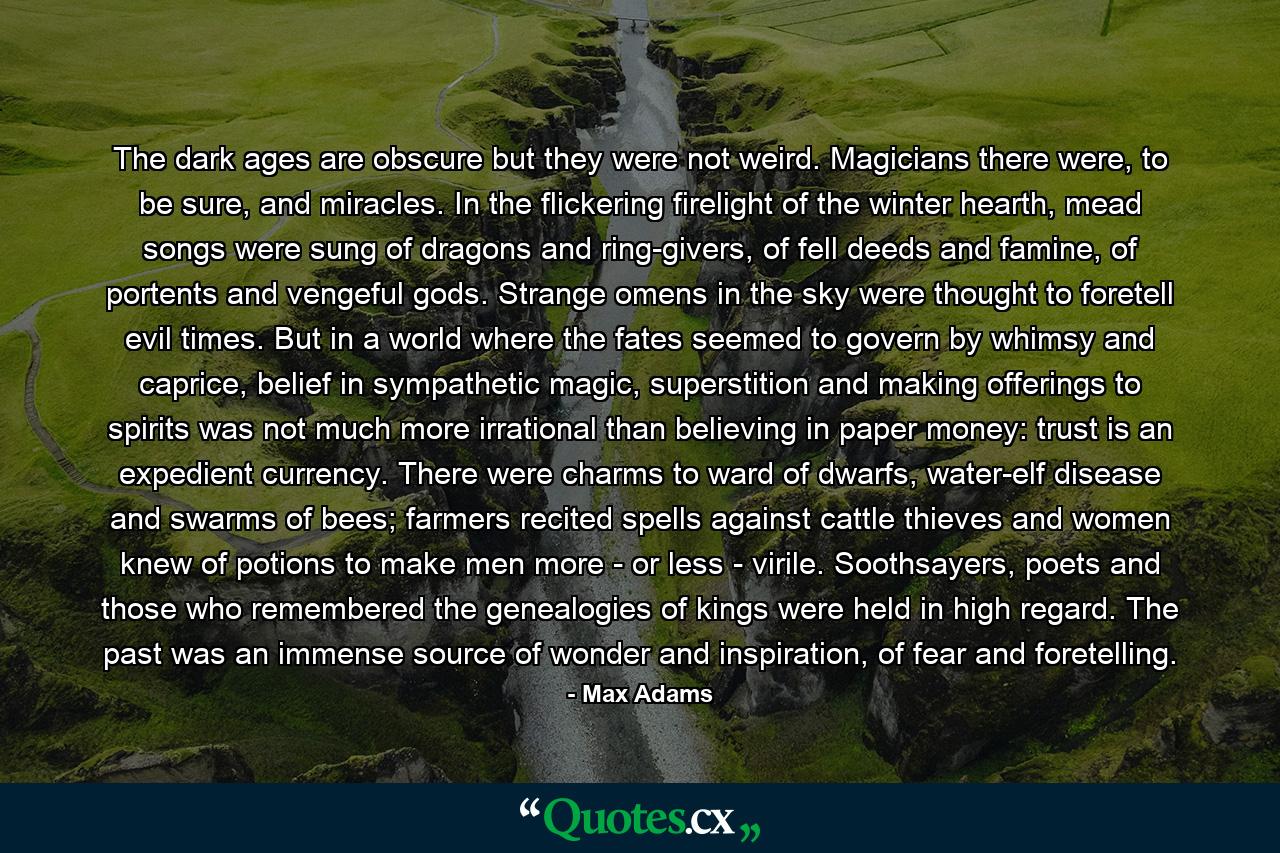The dark ages are obscure but they were not weird. Magicians there were, to be sure, and miracles. In the flickering firelight of the winter hearth, mead songs were sung of dragons and ring-givers, of fell deeds and famine, of portents and vengeful gods. Strange omens in the sky were thought to foretell evil times. But in a world where the fates seemed to govern by whimsy and caprice, belief in sympathetic magic, superstition and making offerings to spirits was not much more irrational than believing in paper money: trust is an expedient currency. There were charms to ward of dwarfs, water-elf disease and swarms of bees; farmers recited spells against cattle thieves and women knew of potions to make men more – or less – virile. Soothsayers, poets and those who remembered the genealogies of kings were held in high regard. The past was an immense source of wonder and inspiration, of fear and foretelling.
